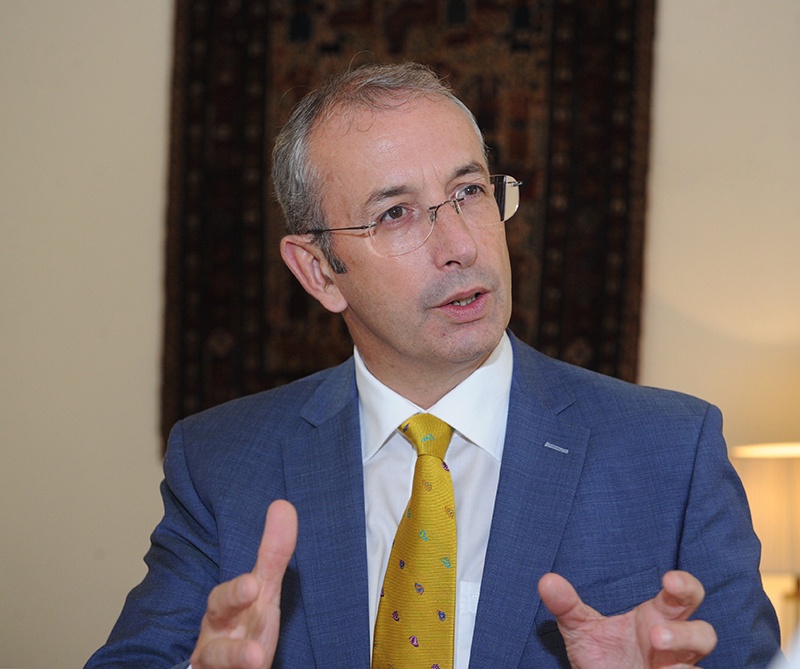
Italian Ambassador Carlo Baldocci 
British Ambassador Michael Davenport
By British Ambassador Michael Davenport and Italian Ambassador, Carlo Baldocci
The World is combating a monumental challenge in handling the coronavirus pandemic. As well as being a health crisis, it will change the face of the global economy, possibly forever. And beyond COVID-19, we face another crisis - the rapidly changing climate. Kuwait and the Gulf will feel these effects even more than other parts of the world – summers are already becoming longer and hotter and, looking further ahead, sea level rise could have a catastrophic impact on coastline cities. Food and water security are at risk.
Like many global events, the 26th annual UN climate summit or COP26 (hosted jointly by the United Kingdom and Italy), which was due to be held in Glasgow, will now take place in November 2021. Action on climate, however, cannot wait.
To avoid the most serious effects of climate change, we must reduce the amount of carbon we are putting into the atmosphere. In 2015, at COP21, the Paris Agreement was signed with a goal of keeping the average rise of the global temperature well below 2ºC. As things stand, global commitments to reduce carbon emissions are a long way off. Countries must come forward with even more ambitious targets for carbon reduction.
Between now and November 2021 we will take advantage of every international opportunity to increase ambition and mobilization, also harnessing the G20 under the Italian Presidency and the G7 under the British Presidency.
As we emerge from the COVID-19 crisis, governments will be assessing the impact on their economies and for many this will offer the opportunity for policy change and resetting strategies. We believe these should focus on supporting a clean, inclusive and resilient recovery building on the principles of the Paris Agreement and the Sustainable Development Goals.
The UK and Italy are showing the way. The UK now regularly gets more than 50 percent of its daily energy requirements from low carbon sources of power production (wind, solar, nuclear). Since 1990 the UK’s C02 emissions have declined by around 38 percent, faster than any other major developed country. Italy is the second largest manufacturing country in Europe, yet has the highest gross renewable energy consumption and lowest per capita emissions in Europe. Since 1990, Italy has reduced its emissions by 17.2 percent (from 516 to 428 Mt CO2 eq.).
For Kuwait, reducing carbon emissions may seem like a threat to its economic independence. But we have seen through this pandemic, coupled with a drop in the oil price, that reliance on one commodity can be a risk. Making oil production cleaner through efficiencies and diversification into other products makes economic sense to protect Kuwait from future economic shocks. Kuwait’s Vision 2035 already provides a roadmap for how this can be achieved. The intention to increase renewable energy production to 15 percent of the energy mix is an important step, and there is now scope for embedding sustainable, low carbon policies to improve construction, public transport and supply chains. Impressively, the Kuwait Investment Authority has led the way in the One Planet initiative, especially on achieving convergence around an international climate standard for investments.
We will work together to ensure that the linked challenges of public health, climate change and biodiversity are addressed. The decisions we make today will either lay the foundation for sound, sustainable and inclusive growth or lock-in polluting emissions for decades and in doing so make our society and the planet more vulnerable.
As we recover, we need to protect and restore nature, reducing our exposure to deadly viruses and climate impacts. A science-led, clean and resilient recovery will create employment in the industries of the future while ensuring we address the linked challenges of public health, climate change, and biodiversity. So this crisis has presented a unique opportunity — the chance to build back better.

